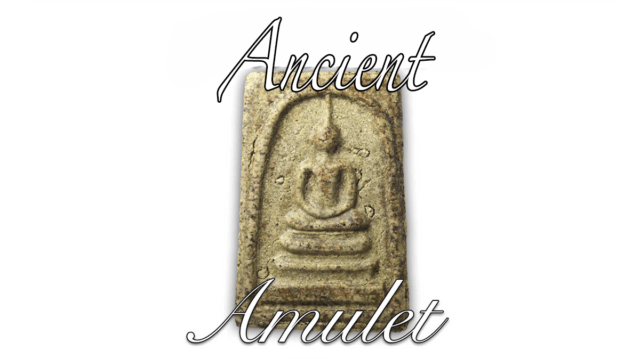
Ancient Amulet Store – Purveyors of preferred Classic Thai Buddhist Amulets for the True Devotee and Distinguished Collector
Discover the immensely deep and fascinating world of Vintage Thai Buddhist Amulets. Ancient Amulet is a long term established and internationally recognized Vintage Amulet Shop, and A Trusted Source for Classic Thai Buddhist Amulets for Devotees and Discerning Collectors, and is one of the many sub projects of informational sources created by Thai Amulet, Buddhism and Thai Occult Expert, Ajarn Spencer Littlewood . as part of his ‘Buddha Magic Project‘
Ancient Amulet provides authentic Antique and Rare Thai Amulets of the Pre and Early Post-Modern Era, of high esteem and Sacred Value, to revere, study and collect. Our Ancient Thai Buddhist Amulets are selected from the finest exhibits we can discover, and given diligent study and authentication processes. Our collection showcases time-honored amulets crafted by ancient masters, boasting captivating qualities and representing the esteemed Pra Niyom class. We offer authentic, highly valued ancient Thai Buddhist amulets from the pre and early post-modern eras, carefully selected from the finest exhibits and thoroughly examined. We invite you to study, revere, and collect these classic amulets from ancient masters, and to learn about their magical aspects and the art of amulet evaluation